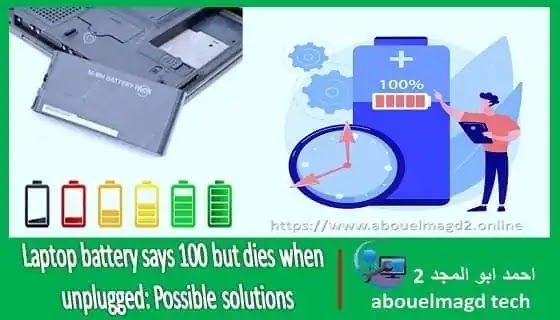Computers are a fundamental piece of everybody’s regular routine, and they are getting increasingly more significant constantly. Would you be able to envision living without a computer, web, or cell phone in any event, for only one day? It would be remarkably difficult!
 |
| Learn vocabulary related to computers and technology |
Vocabulary related to computers and technology is key, let’s start with some fun stuff.
First: adware
As the word suggests from the first part, advertisement, advertisement refers to advertisements. So when you download a particular app, you might have noticed a lot of ads appearing on your screen, that is precisely because the app has already stored adware in it which causes these ads to appear which sometimes gets viruses to devise files.
So be very careful about the apps you use. It may contain adware and cause you to get a virus on your device, So the adware is the pre-stored ads.
Second: the application
The app or apps you’ve already heard of. So these are programs designed on their own Single-use or used by a person. It’s cross-platform but you can download it exclusively to your phone or your computer.
For example, the Facebook app or the Gmail app on your phone. For single use.
Third: bloatware or fat
Can you guess something from the lyrics? So something, who is chubby? Somebody Which consists of a large area. In the same way, bloatware or fatty programs take up a lot of space on your device. They are pre-put away programming on your gadget.
So when you buy a computer maybe or even a phone, an Android phone. When you buy it, there are some pre-stored apps like Gmail or the play store. These are what you call, bloatware, with a lot of bloatware in your device, you don’t have enough space to store personal data and you need a memory card to save some personal data. Pre-stored apps. I wouldn’t do that to be too biased towards Apple users.
Fourth: bug
Have you heard of this word before? Something like stop bugging me. Stop bothering me. In the same way, the word, bug means something that bothers you. So when you download a specific program, sorry a specific application or program, it has cached the bug by itself. Even bugs basically have some errors in the written text of the application. For example, JavaScript or PHP.
So the program writer made some mistakes while writing the script and that you end up with, because of that you end up having errors while using the program and all of a sudden your phone hangs or the app just crashes and you are unable to use it.
So they are just as annoying as the little bugs we encounter every day. Store errors in the written language or written in the program code.
Fifthly: the cache
So the cache is small bits of information, not money that we usually know in terms of money.
The cache is previously stored information. Cut information on your device Whenever you visit a website, there is data that your device or your computer may be storing locally. When you visit the site for the second time, the images and information load faster and let’s talk about Facebook.
So when you are logged into Facebook, it asks you to want the browser to remember files and where the browser remembers those files.
It remembers those files as a cache which is temporary memory on your device.
Likewise, we have cookies which are also temporary files on your device. Anytime you log into Facebook, you will see a list of logged-in Identifiers that have previously logged into the site and these are cookies. Information stored on a particular website.
Zoom in….crash, that’s how a plane crashes and that’s exactly how an app can also crash or your device can also crash when it contains some corrupt files.
So whenever you have a device that suddenly crashes or unexpectedly it stops working, that’s when your device crashed and you need to correct it. Possibly by an IT technician. Unexpected hangs in your device.
Sixth, the firewall
It is like a firewall, not in the literal sense of the word but then a defensive wall that protects a device from a virus or other devices to hack your information. So when a computer network is working, other computer users may want to hack your information but if you install a firewall in the network file, there is a good chance that your information will be safe and your device will not be hacked.
So this prevents your device from being hacked. Prevent hacking But a firewall is different from an antivirus.
Antivirus stops viruses from entering your device and firewall prevents hacking.
So you should both have it on your computer to keep it more secure.
Seventh: Hardware
Well, this is a very common term. We know this software is a part of the computer that you can’t touch, that’s intangible but the hardware is the parts or units of the computer that you can touch, for example, the desktop, the CPU, the keyboard, what are the hardware. The tangible parts of a computer.
Eighth: home page
So the word “home” here means the first page you see when you click on a website. They are usually linked to other sites for example if your home page or on your computer is Google.
So when you sign in to your device or computer, the first page that appears on the screen is Google and has links to other sites.
So when you want to visit other sites, you can type in the search bar and it will lead you to other links but the first page on your screen or the first page of the website is called the home page. The first page of the website.
Ninth: Communication etiquette
Does this sound like a word you’ve heard before? Something like etiquette? Yes, etiquette is the etiquette you require on computers, networks, or the Internet.
These are some unofficial rules designed for users on the internet. So I mustAs you really avoid chasing other people’s sites, that’s not so good. This is one of computer etiquette and you should also try not to share your personal information on the internet.
For example, private on a public network. You ought not to share your financial subtleties or your login ID and secret phrase for a significant site.
Informal rules designed for users
Spam and spam are also used outside of your computer vocabulary as the unwanted people in your life are spam. In the same way, unwanted emails that go to the trash or junk folder are called spam.
So if you have any spam in your life that you need to get rid of and if you have any spam on your email or on your email account then you need to empty it in a trash folder or junk file. Unsolicited emails.
These messages are typically special in nature and are there for showcasing purposes.
For example, you have subscribed to a website file, all emails you receive from this website for promotional purposes will go to your Trash folder but your personal emails will be in your main and primary inbox. So they can be distinguished and make it easier for you to understand and organize your account.
Ten: Spyware
Something like adware looks similar. So, spyware when you have a certain website, for example, Google is constantly spying on the website which you are visiting.
So if you are planning a trip to Dubai and you search recently after a while when you visit someone else’s website, there will be an ad displayed on the other part of the page for a trip to Dubai. The cheapest flight to Dubai, flight to Dubai.
You know this can’t be a coincidence, someone is definitely spying on you, maybe This is Google.
So you should really sue them and that they have spyware installed on their website, which comes the moment you click on the site. To discover your online habits.
Eleventh: VC
video conference; This is also a very common term. You must have heard of Skype, that is exactly the video conference.
When you can see and hear someone at the same time. Here and there it tends to be between two people and now and then it might be fine between several people.
It can be a group of 5 to 10 people but what you need is that everyone should install this specific app on their device.
So only when it is installed, and when Skype is installed on someone else’s device, can you have a Skype conference or video conference with that person.
This is an audiovisual communication over the Internet. And so we look at the last word, that is, it is really difficult to pronounce, it is rather strange. How do we call that? Do you want to try hey? Something called WYSIWYG which means what you see is what you get. Yes, not in the video but otherwise.
Thus when using a program there are some programs, for example, video editors such as After Effects, when using this program if you click on the red color exactly what you will see on the screen. If you click on any other feature on the program’s website, it will appear on the screen and the same thing happens to go to print or shoot a movie or video that you are editing. So what you see is what you get.










